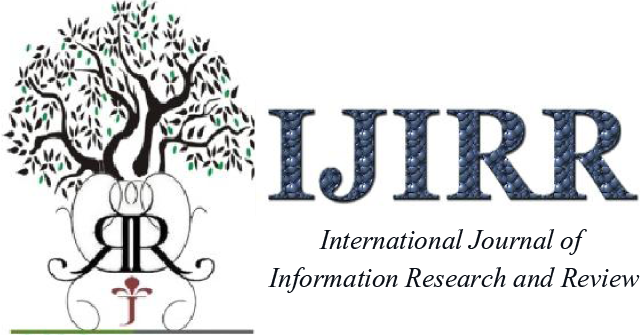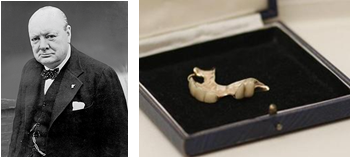Editorial
Volume 2 Issue 5 - 2018
Winston Churchill (1874-1965) and his Dentures
DDS, PhD in History of Sciences and Technics, Laureate and Associate member of the National Academy of Dental Surgery, Free member of the National Academy of Surgery. 145, route de Vannes, 44800 Saint Herblain, France
*Corresponding Author: Xavier Riaud, DDS, PhD in History of Sciences and Technics, Laureate and Associate member of the National
Academy of Dental Surgery, Free member of the National Academy of Surgery. 145, route de Vannes, 44800 Saint Herblain, France.
Received: February 10, 2018; Published: February 14, 2018
Winston Churchill, Prime Minister of the United Kingdom from 1940 to 1945, who was made Companion of the Liberation by the General de Gaulle in 1958, was well-known for his kind words. While the war was in full swing, one day, Charles de Gaulle invited Churchill for breakfast: “Let’s say 7 o’clock dear Prime Minister.” Hating to get up at dawn, Churchill was said to have declared: “Why not 6 o’clock, my General? We could then shower together!” Or, one day, while together in London at a meeting, the French General is said to have exclaimed to the Prime Minister who was dressed like a dandy: “But this is London’s carnival!”. Churchill replied: “My dear, not everybody is supposed to dress like the unknown soldier!”. He was a staunch defender of the English territory against the Nazis. Throughout the conflict, he epitomised a certain concept of freedom and democracy in Europe.
However, he was also known to have a real speech impediment. As a result of a dental problem that he had had since his childhood, he often lisped which made the practice of speech quite difficult for him1. Despite all that, every single day that World War II lasted, on the radio, the British had the opportunity to listen to his martial voice in numerous monologues inveighing his fellow citizens to continue the fight against the German oppressor.
Despite unsuccessful attemps to get rid of this dental problem, Churchill asked his dentist for his dentures to be looser than usual to prevent this flaw in the art of diatribe. Indeed he wished that his fellow citizens identified him without any hesitation. That is why his addresses were essential. Therefore, special dentures were made according to his demands. He always carried two alternate removable prostheses with him. Made of precious metal alloy, these dentures replaced four upper incisors (12, 11, 21, 22) and two upper left premolars (24, 25). Moreover, they did not show the dental bracket on the upper left canine tooth (23) or the upper left molar (26). His dental technician, Derek Cudlipp, was exempted from battle upon the Prime Minister’s order. When the former asked to be transfered to another regiment, Churchill personally summoned him to stay in London considering that repairing his dentures was more important than contributing to the war effort2.
In a recent BBC interview, the dental technician remembered that Churchill used to eject his dentures from his mouth when he received bad news from the front. He recalled: “My father told many anecdotes on how Churchill was putting his thumb behind his teeth to eject them. He said he could tell the situation of the war effort from the distance they crossed through the room.”
On January 19th 2011, in London, during some auction sale, one of Churchill’s removable prosthesis which was owned by the Cudlipp family, was sold 19,000 euros3.
Another prosthesis was exhibited at the Royal College of Surgeons’ Hunterian Museum in London. Offered by the same family, this prosthesis constituted one of the most watched items of the museum and as its curator said, “Here are the teeth that saved the world. Without them, ‘Fight them on the beaches’ would not have had the same intonation. They were essential for the war effort.”
1Libération, « 19 000 euro, le prix d’un dentier… de Churchill », 20/01/2011, www.liberation.fr.
2Kersaudy François, Winston Churchill, Tallandier (éd.), Paris, 2015.
3Riaud Xavier, « Le dentier de Churchill », in 2eguerremondiale.fr, sans date.
2Kersaudy François, Winston Churchill, Tallandier (éd.), Paris, 2015.
3Riaud Xavier, « Le dentier de Churchill », in 2eguerremondiale.fr, sans date.
Citation:
Xavier Riaud. “Winston Churchill (1874-1965) and his Dentures”. Oral Health and Dentistry 2.5 (2018): 450-451.
Copyright: © 2018 Xavier Riaud. This is an open-access article distributed under the terms of the Creative Commons Attribution License, which permits unrestricted use, distribution, and reproduction in any medium, provided the original author and source are credited.




































 Scientia Ricerca is licensed and content of this site is available under a Creative Commons Attribution 4.0 International License.
Scientia Ricerca is licensed and content of this site is available under a Creative Commons Attribution 4.0 International License.